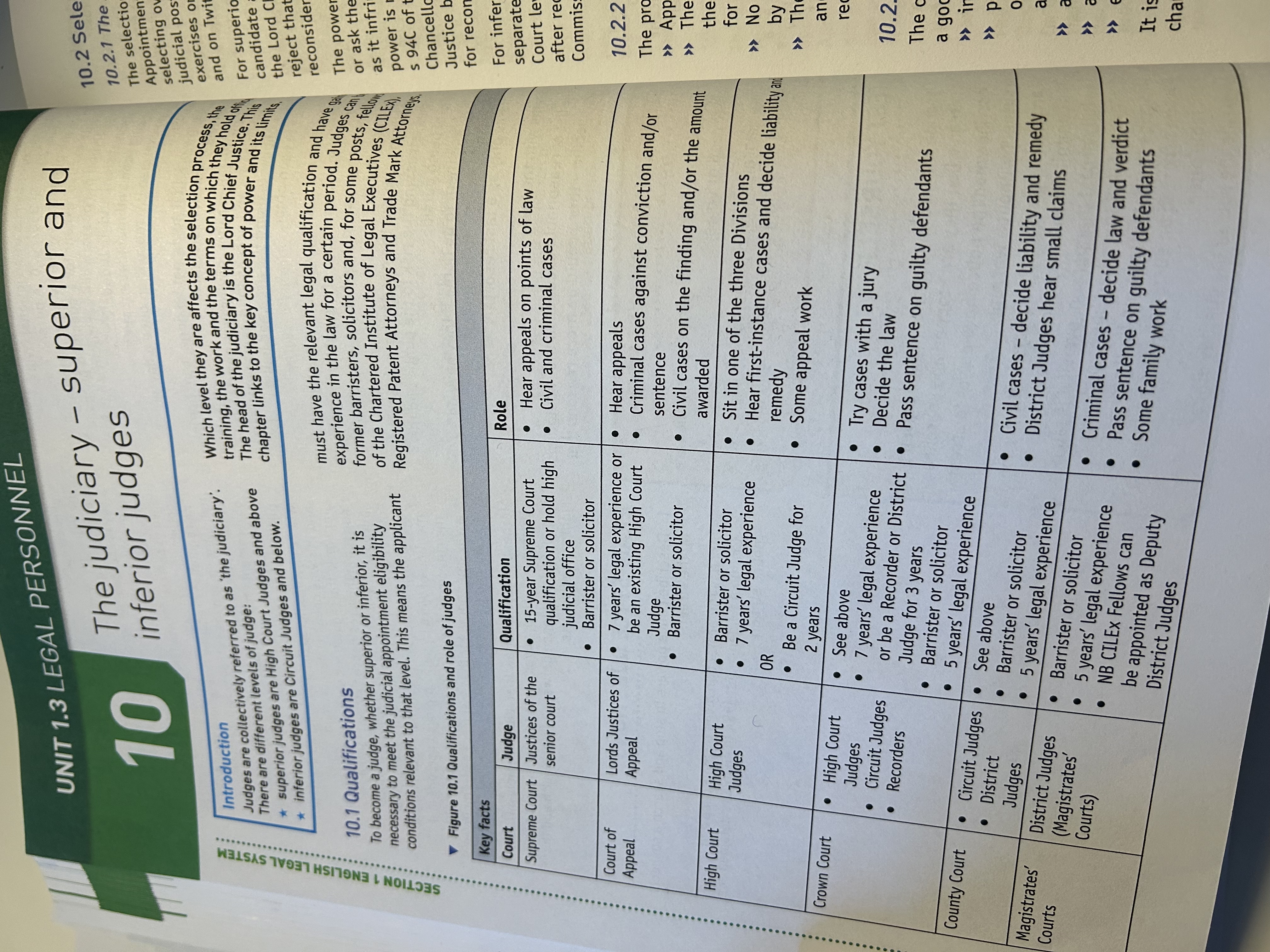What are the qualifications and roles of different judges in the UK judicial system?

Understand the Problem
The question appears to be referencing a table that outlines the qualifications and roles of different types of judges within the UK judicial system. Key concepts include the levels of judges, their qualifications, and the specific roles they perform in various courts.
Answer
UK judges have varied legal qualifications and roles, from hearing appeals to trying cases.
The UK judiciary consists of superior judges (e.g., Supreme Court justices with 15 years' experience) and inferior judges (e.g., District Judges with 5 years' experience). Their roles include hearing appeals, trying cases, and passing sentences.
Answer for screen readers
The UK judiciary consists of superior judges (e.g., Supreme Court justices with 15 years' experience) and inferior judges (e.g., District Judges with 5 years' experience). Their roles include hearing appeals, trying cases, and passing sentences.
More Information
Judges in the UK must have significant legal experience, often requiring years of being a barrister or solicitor. Superior judges handle higher-level cases, while inferior judges manage less complex issues.
Tips
A common mistake is assuming all judges have the same qualifications and roles; in reality, they vary significantly between different court levels.
Sources
- Types of judicial roles - Judicial Appointments Commission - judicialappointments.gov.uk
- Courts and Tribunals Judiciary - judiciary.uk
AI-generated content may contain errors. Please verify critical information